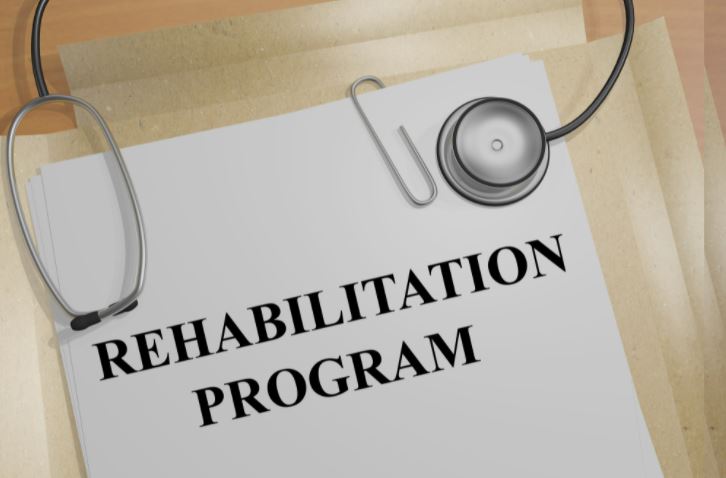From April 2020 to April 2021, more than 100,000 Americans died of a drug overdose. This is an increase of almost 30% from the previous year. Yet, even though addiction continues to be a serious public health crisis in the US, resources are available to help.
If you’re looking to enter a Tennessee alcohol rehabilitation facility, knowing which types of insurance you can use is beneficial to cut down on costs.
Keep reading to learn more about insurance coverage for drug and alcohol rehab.
Does Health Insurance Cover Rehab Centers in Tennessee?
The simple answer is yes. When lawmakers passed the Affordable Care Act (ACA), they included substance use disorders as one of the ten elements of essential health benefits.
That means any health insurance on the Health Insurance Exchanges or provided to newly eligible adults through Medicaid must include services for substance use disorders.
Medicaid covers treatment like inpatient and outpatient care. Additionally, those with Medicaid don’t pay a co-pay for addiction treatment services. But, many treatment facilities don’t accept Medicaid as a form of payment.
Medicare Parts A and B include addiction treatment. Part A provides coverage for hospitalizations for substance abuse treatment, while Part B covers partial hospitalization and outpatient services.
Medicare Part D provides coverage for medications. But, it doesn’t cover all medicines, and some still require an out-of-pocket fee.
However, most private insurance companies have plans that cover substance abuse. This includes:
- Aetna
- Anthem
- Blue Cross Blue Shield
- Cigna
- Humana
- United Healthcare
Private insurance companies usually have more comprehensive coverage, but they also cost more.
Before the ACA, health insurance companies could refuse coverage to people based on pre-existing conditions, like addition, or charge them higher costs. Now, health insurance companies cannot do this.
Further, just because an insurance provider covers rehab centers in Tennessee, it doesn’t mean they cover the program’s total cost.
What Treatment Does Insurance Cover?
Every insurance provider and policy will offer different alcohol and drug rehab coverage. Thus, it’s best to check your specific policy and speak with your insurance provider.
This way, you can better understand the coverage available in your specific plan.
For example, if you’ve relapsed and need to return to treatment, your insurance may exclude additional therapies.
Available Treatments
Even though coverage will vary by policy, alcoholism treatment usually includes necessary therapies, medications, and services. Examples are:
- Detoxification
- Recovery maintenance
- Inpatient services
- Outpatient services
- Individual or group counseling
A detoxification program allows you to withdraw from drugs or alcohol safely. Medical professionals keep a close eye on you and assist when necessary with treatment. Detoxification is the first step to recovery.
Inpatient programs require you to live at a recovery facility. These programs offer 24/7 medical assistance and therapy.
Outpatient services are available for those who need less assistance with their addiction. You still have access to the resources and therapy you need but can maintain working and living independently.
Before entering a recovery center, your doctor will help determine what treatment is best for you to succeed.
The Cost of Treatment
As with the treatment options available, the cost of treatment is also going to vary greatly. The price depends on what your insurance covers and how much assistance you need. So again, please speak with your insurance provider about how much they cover.
In-network vs. Out-of-Network
Many insurance policies offer different prices based on if the facility you want to attend is in-network or out-of-network. Thus, it’s best to research alcohol treatment centers in Tennessee within your insurance network so you pay less.
Going out of network means more expenses you have to pay. Each insurance company has several in-network options. You can also verify your insurance with your chosen facility to better understand your financial responsibility.
Out-of-Pocket Expenses for Alcohol Rehabilitation
There are some costs associated with health insurance and drug or alcohol treatment that your insurance won’t cover. These include:
- Premiums
- Coinsurance
- Co-pays
- Deductibles
- Limitations
Your premium is what you pay to have the insurance policy.
Coinsurance and co-pays are fees you pay to the doctor or service provider. You pay a portion of the cost, and your health insurance provider pays an amount.
A deductible is how much you pay before your coverage begins. For example, if your deducible is $2,000, you must pay $2,000 toward medical expenses in one calendar year before your insurance covers anything.
This is on top of your monthly premium payment.
Some plans also have limitations in paying for coverage up to a certain point. After that, you bear full responsibility. As mentioned, this may include those seeking treatment after a relapse.
Can I Go To Rehab Without Insurance?
Self-pay is always an option when going to a rehab center. But, of course, that means the costs will be more expensive.
However, most treatment centers offer payment plans. Some offer loans and public assistance too. There are also state- and local-funded health programs that can assist with the cost of drug rehab.
If you currently don’t have insurance, remember providers cannot deny you for addiction. So consider purchasing a plan you can afford before entering rehab to help offset the costs.
If insurance is still too expensive, look for government assistance programs or facilities with payment options to help.
Get Help Today
For many, the cost of treatment stops them from seeking help and starting their road to recovery. At our Tennessee alcohol rehabilitation facility, we believe everyone deserves access to treatment, love, and care.
If you’re ready to start your recovery process, reach out to us now at Apex Recovery. You can guarantee we’ll provide you with individualized care and guidance.

